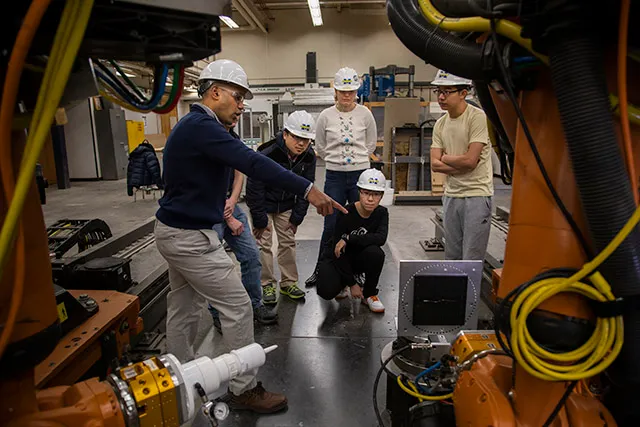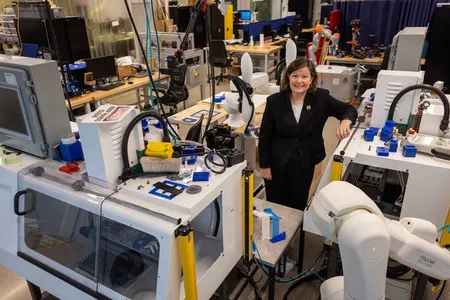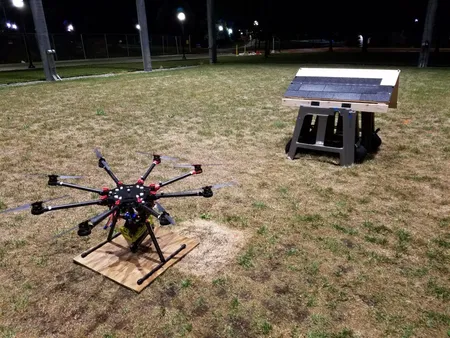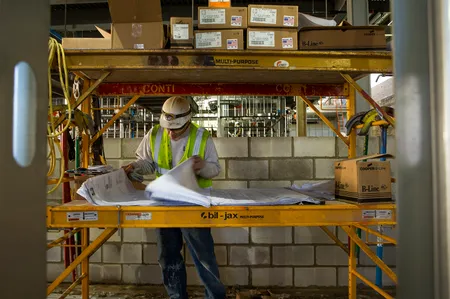With robotics, manufacturing becomes much more dynamic and adaptive, lending itself to products that are more readily custom-made to specific needs. The core of robotic manufacturing now is flexibility, adaptability, and efficiency.
In the past, manufacturers built expensive, difficult-to-modify machines that did the same thing over and over for decades — think of the classic image of cars moving down an assembly line. Now robots can change functions by the hour or the day. The machines can adapt to the people, instead of forcing workers to adapt to the machines.
3D printing, one of the key tools in robotic manufacturing, now opens manufacturing to using a wide variety of materials, shaped in almost any way that humans can imagine, without the limitations imposed by traditional machining. Engineers no longer need to start with a solid block of material. They can compose materials to create a specific function. U-M startup S3D Precision Dispensing is marketing an unprecedented smart-surface manufacturing technology that prints sensors, actuators, and electronics on multiple types of surfaces at resolutions from five millimeters to 50 nanometers.
Smart manufacturing, meanwhile, involves using data to make better, faster decisions. Michigan roboticists view humans as a permanent component in smart manufacturing. The challenge here is to devise rules that balance the trade-off between system autonomy and flexibility as the system works together with people. Those rules will help humans work with machines, and help machines work with machines. Michigan researchers work to make these interactions dynamic, flexible, and interactive.
Even as robotics transforms the factory floor, it also can revolutionize product development by providing real-time information about how consumers actually use products. Sensors and optics embedded into the stuff of everyday life, including cars, clothing, and medical gear can help people make smarter decisions. These same sensors integrated into a robot can provide unparalleled environmental knowledge to help robots make more intelligent decisions.




